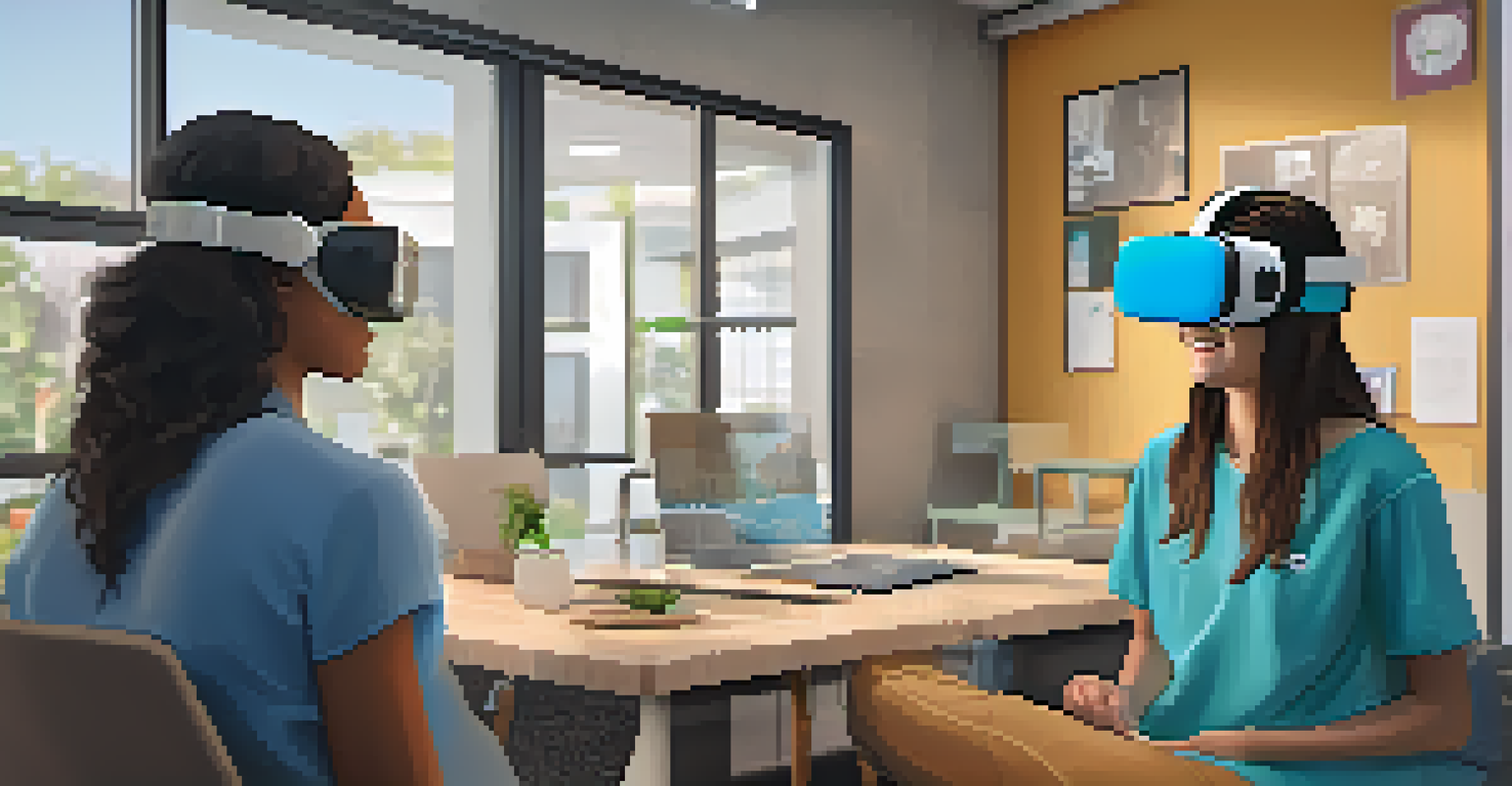Microlearning for Conflict Resolution Skills Development

Understanding Microlearning and Its Benefits
Microlearning is an educational approach that delivers content in small, focused segments. This method allows learners to absorb information without overwhelming them, making it ideal for busy professionals. Imagine learning a new skill in bite-sized pieces, much like snacking throughout the day rather than having a heavy meal all at once.
The greatest conflict we face is not between our differences but in our ability to resolve them.
One of the main benefits of microlearning is its flexibility; learners can engage with content anytime, anywhere. This adaptability not only enhances retention but also encourages continuous learning. By integrating microlearning into conflict resolution training, individuals can tackle specific scenarios when they arise in their work or personal lives.
Additionally, microlearning can improve engagement and motivation. Short, interactive modules are often more enjoyable than lengthy lectures, leading to better outcomes. As a result, learners are more likely to practice their new skills in real-world situations, ultimately enhancing their conflict resolution abilities.
The Role of Conflict Resolution Skills in Daily Life
Conflict resolution skills are essential for navigating disagreements in both personal and professional settings. These skills help individuals communicate effectively, understand different perspectives, and find mutually beneficial solutions. Picture a workplace where colleagues resolve misunderstandings quickly and respectfully, fostering a collaborative environment.

In everyday interactions, conflict can arise over small issues or significant disagreements. The ability to resolve these conflicts constructively can strengthen relationships and build trust. When we invest in developing our conflict resolution skills, we not only enhance our own experiences but also contribute positively to the dynamics of our communities.
Microlearning Enhances Skill Retention
Microlearning delivers content in bite-sized segments, making it easier for busy professionals to absorb and retain new skills.
Moreover, strong conflict resolution skills can lead to improved mental health. When individuals feel equipped to handle disputes, they experience less stress and anxiety. This sense of empowerment can make a significant difference in how we approach challenges, ultimately leading to more harmonious relationships.
Microlearning Techniques for Conflict Resolution
There are various microlearning techniques that can effectively enhance conflict resolution skills. For instance, scenario-based learning involves presenting realistic conflict situations and guiding learners through the resolution process. This method allows individuals to practice their skills in a safe environment, boosting their confidence.
Learning is a treasure that will follow its owner everywhere.
Another effective technique is the use of short video clips or animations that illustrate conflict scenarios and resolutions. These engaging formats capture attention and simplify complex ideas. Imagine watching a brief video on active listening during a disagreement, then applying that technique in your next conversation.
Lastly, incorporating quizzes and interactive activities can reinforce learning. By testing knowledge and skills in a fun way, individuals are more likely to remember what they have learned. This approach not only solidifies their understanding but also encourages them to apply these skills in real-life situations.
Creating a Microlearning Plan for Conflict Resolution
To develop a microlearning plan for conflict resolution skills, start by identifying the specific skills you want to focus on. These may include active listening, empathy, or negotiation techniques. By narrowing down the skills, you can create targeted content that addresses the most relevant challenges faced.
Next, consider the delivery methods that will work best for your audience. Will they benefit from mobile-friendly modules, or do they prefer desktop access? Tailoring your approach to the preferences of your audience will increase engagement and effectiveness.
Conflict Resolution is Essential
Strong conflict resolution skills help individuals navigate disagreements effectively, fostering better communication and collaboration.
Finally, evaluate the effectiveness of your microlearning plan. Gather feedback from participants and track their progress over time. By continually refining your content and approach, you can ensure that your conflict resolution training remains relevant and impactful.
Measuring the Impact of Microlearning on Skills Development
Measuring the impact of microlearning on conflict resolution skills can be done through various methods. One effective approach is to conduct pre- and post-training assessments. This will help gauge the improvement in participants' skills and highlight areas that may need further attention.
Another valuable method is to collect qualitative feedback from learners. Personal anecdotes about how they applied their new skills in real-life situations can provide deeper insights into the effectiveness of the training. For example, a participant might share a story about successfully navigating a workplace disagreement using techniques learned through microlearning.
Lastly, monitoring changes in workplace dynamics can serve as an indirect measure of impact. If conflicts are resolved more swiftly and amicably, it may indicate that team members are applying their skills effectively. This positive shift in the workplace atmosphere can be a strong indicator of successful skills development.
Challenges in Implementing Microlearning for Conflict Resolution
While microlearning offers numerous benefits, there are challenges to consider when implementing it for conflict resolution training. One common challenge is ensuring content is relevant and up-to-date. As workplace dynamics evolve, the scenarios and skills taught must reflect these changes to remain effective.
Another hurdle is engaging participants consistently. While microlearning is designed to be flexible, some individuals may struggle to integrate learning into their busy schedules. Providing reminders and creating a supportive learning culture can help encourage participation.
Technology Shapes Future Learning
Advancements in VR and AI will personalize and enhance microlearning experiences, making conflict resolution training more effective.
Lastly, some learners may prefer traditional learning methods and resist adopting microlearning techniques. Addressing these concerns through communication and showcasing the benefits of microlearning can help ease the transition and foster a more open mindset towards this innovative approach.
The Future of Microlearning in Conflict Resolution Training
The future of microlearning in conflict resolution training looks promising, especially with advancements in technology. As virtual reality (VR) and augmented reality (AR) become more accessible, they could provide immersive learning experiences. Imagine immersing yourself in a VR scenario where you practice conflict resolution in a controlled environment, enhancing your skills in a lifelike setting.
Additionally, the rise of artificial intelligence (AI) could personalize learning experiences. AI could analyze individual learning styles and preferences to create tailored microlearning paths. This level of customization ensures that learners receive the most relevant content, making their training more impactful.

Ultimately, as organizations continue to recognize the value of conflict resolution skills, microlearning will likely play a crucial role in developing these abilities. By embracing innovative technologies and approaches, we can create more effective training programs that empower individuals to handle conflicts with confidence and competence.